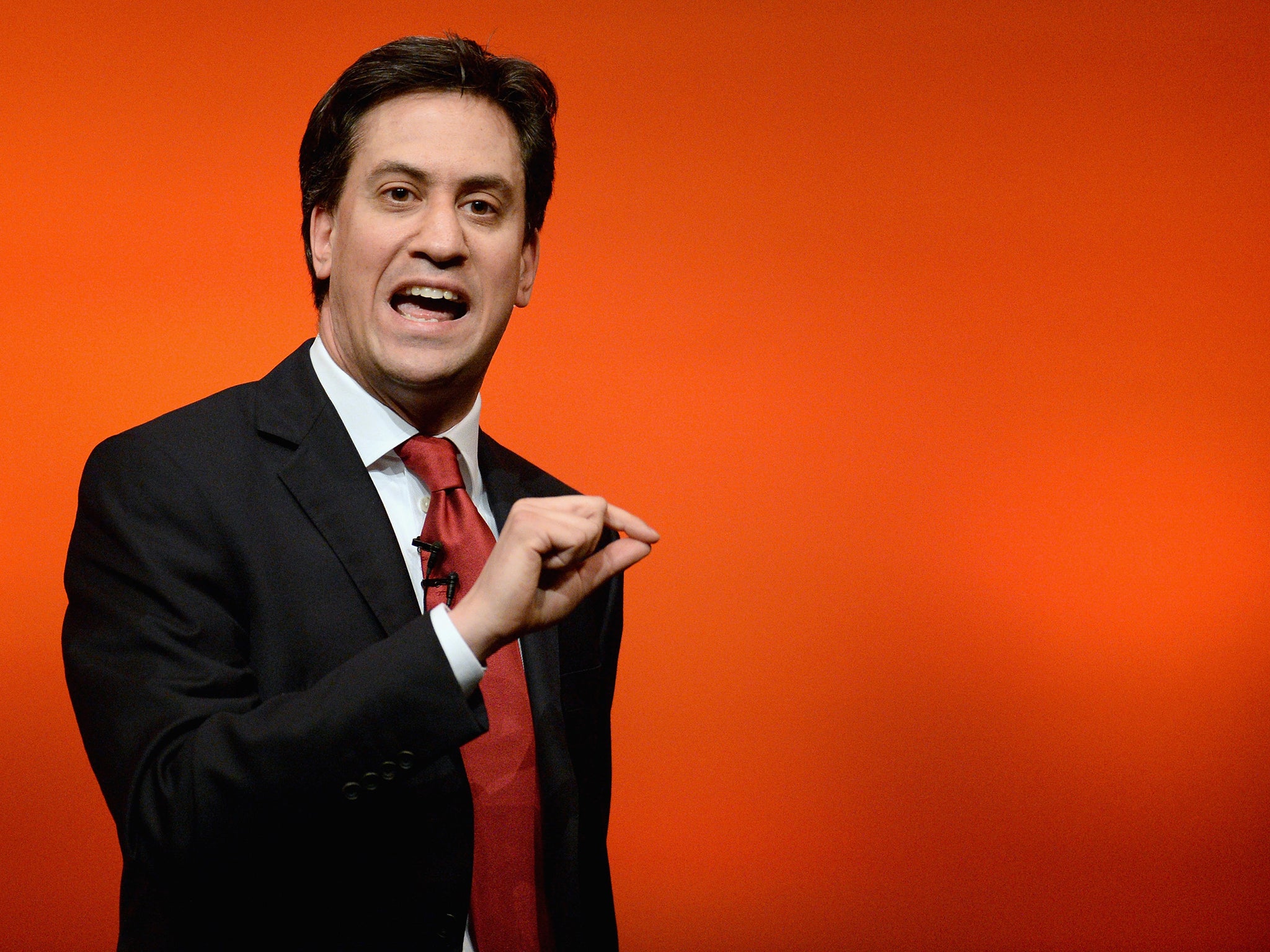Palestinian statehood: Ed Miliband demands whipped vote, but backs down to avoid resignations
Labour MPs who are concerned that this is an anti-Israel motion say it is against party policy, and want a free vote

Ed Miliband has, in effect, rewritten the rulebook of parliamentary procedure in an attempt to stave off a damaging revolt by senior Labour MPs over tomorrow's controversial Commons vote on the recognition of the Palestinian state.
In a highly unusual move that has left senior parliamentarians struggling to find a precedent, the Labour leader has insisted that Labour MPs who file through the lobby submit to a three-line whip, which normally requires members to vote with the leadership. But he is, in effect, letting those not in the vicinity of Parliament off the hook, and they will not vote at all. Conservatives and Liberal Democrats will not be whipped.
The move appears designed to avoid the political embarrassment of several MPs taking a principled stand, running the risk of them having to resign or be dismissed over the issue. The result is that a raft of front-bench and senior Labour MPs who are sympathetic to Israel will simply not turn up for the vote.
The vote is a hugely contentious, but potentially historic parliamentary motion, proposed by a Labour backbencher, the Easington MP Grahame Morris, that calls on the Government to symbolically recognise Palestine as an independent state.
Labour MPs who are concerned that this is an anti-Israel motion also say it is against party policy, and want a free vote.
Among those expected to stay away are various members of the Shadow Cabinet. Rachel Reeves, Ivan Lewis, Michael Dugher, and Jim Murphy are expected to be absent.
Other high-profile absentees are likely to include Anne McGuire, a former shadow minister; Michael McCann, who is PPS to Ms Reeves; Luciana Berger, a party spokesperson on public health; Ian Austin, who was a parliamentary aide to Gordon Brown when he was prime minister; and John Woodcock, the highly regarded MP for Barrow and Furness.
Ms Reeves, Mr McCann and Mr Dugher are also officers of Labour Friends of Israel, which is chaired by Mrs McGuire. Many MPs are concerned that the vote will cause friction within the party just seven months ahead of the election.
"To say that this is an unfortunate situation is an understatement," said one shadow minister. "The party didn't need to get itself into this situation – it's a combination of cock-up and failure to deal with the cock-up.
"There are four statues of prime ministers in the [Commons] Lobby – Clement Attlee, Winston Churchill, Margaret Thatcher and David Lloyd George. They never solved the Middle East problem, yet we've gone and got ourselves in a tizzy over it and think we've got a solution.
"This problem has been around for decades and decades and decades. The Tories and Liberal Democrats must be sitting back, pissing themselves laughing."
A senior Labour MP added that the arrangement which is allowing Labour MPs to abstain is "unusual", but meant that it was less likely that shadow ministers would quit.
However, some Labour MPs would be willing to vote for the motion if it includes an amendment proposed by a senior cross-party group of MPs, including the former foreign secretary Jack Straw and the Conservatives' Alan Duncan. This would add the words "as a contribution to securing a negotiated two-state solution" to the original motion, which states: "This House believes that the Government should recognise the state of Palestine alongside the state of Israel."
It is not yet certain whether the amendment, which is supported by Mr Miliband, will be included. The Speaker of the House of Commons, John Bercow, will not decide whether to include the amendment until tomorrow morning. Douglas Alexander, Labour's foreign affairs spokesman, is thought by some to be in part responsible for the leader's position. In a recent blog, he stated: "Labour's consistent support for the principle of recognising Palestinian statehood, as part of continuing steps to achieve a comprehensive negotiated two-state solution, is why we will be voting to support the principle of Palestinian statehood when the House of Commons debates the issue on Monday."
A source close to Mr Miliband confirmed that Labour MPs would not be ordered to attend the vote, but would be expected to vote in favour of the amended motion if they turned up.
How whips work
The coalition is "making up the constitution as it goes along", according to Professor Philip Cowley of Nottingham University. Conservative and Lib Dem whips have resorted to creative ways of managing two parties in one government, and even more imaginative have been the devices used to soften splits within the parties. On some votes, for example, Conservative ministers have been whipped – that is, told how to vote – while Tory backbenchers have been allowed a free vote.
Tories and Lib Dems have just such a free vote on tomorrow's motion to recognise Palestine as a state. Labour MPs are under a one-line whip to attend the Commons – meaning "if you feel like it" – but if they are present they are under a three-line whip to vote for the motion – with disciplinary action expected if whips' instructions are not carried out.
But as no one would be disciplined for failing to turn up, the three-line whip is symbolic only. Which is most odd, and which is why Ed Miliband is hoping John Bercow, the Speaker, will accept a late amendment by Jack Straw, Labour's former foreign secretary.
These contortions are brought on because changes made just before the last election gave more power to backbenchers. The Palestinian statehood motion was tabled by the new Backbench Business Committee. In the old days it would have been quietly sidelined by "the usual channels" (the informal system of co-operation between government and opposition).
Tomorrow, it will split the Labour Party.
John Rentoul
Bookmark popover
Removed from bookmarks